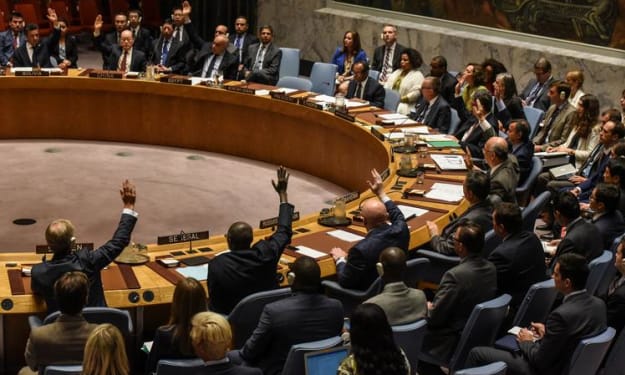Content warning
This story may contain sensitive material or discuss topics that some readers may find distressing. Reader discretion is advised. The views and opinions expressed in this story are those of the author and do not necessarily reflect the official policy or position of Vocal.
Remembering the Tragic Massacre of September 1987
A Day of Bloodshed and Struggle for Democracy

The history of any nation is often marked by significant events that shape its course. On September 29, 1987, one such tragic event occurred In the case of Haiti during the country's democratic election. On that fateful day, the promise of progress and hope turned into a nightmare as a violent massacre unfolded, leaving a lasting scar on the nation's collective memory and mine. In this blog, we will delve into the historical facts surrounding this tragic event and reflect on its impact on Haiti's struggle for democracy.
The 1987 election was highly anticipated, as it represented a crucial moment for Haiti's democratic transition. The country had recently experienced the exile of the infamous dictator, Jean-Claude Duvalier, known as "Baby Doc". The people eagerly yearned for a new era of freedom and political stability. However, deep-rooted social and political tensions threatened to disrupt this fragile process.
As the dawn of election day arrived, a palpable tension filled the air, mingling with a mixture of excitement and fear. I can still vividly recall the look of apprehension and distrust on my mother's face. People lined up outside polling stations, eager to exercise their democratic rights and cast their votes. However, what should have been a peaceful expression of democracy soon spiraled into an unimaginable nightmare.
In the early morning hours, armed groups began making their presence known, riding through neighborhoods in pickup trucks, seemingly offering a false sense of security. Yet, the sight of army tanks lurking nearby hinted at something far more ominous. In our own neighborhood, my mother received a hushed and urgent warning from a militant perched in the back of a pickup truck. He advised her to hurry back home without delay.
It didn't take long for chaos and terror to descend upon the polling stations. What started as sporadic incidents of violence quickly escalated into a full-blown massacre, unfolding within the first two hours of the polls opening. Innocent civilians, filled with hope for a better future, tragically became victims of senseless brutality.
Photographers and journalists, present on that tragic day, found themselves thrust into the heart of the chaos. The streets ran red with blood, echoing the cries of anguish and despair. The scenes were both haunting and heartbreaking. Men, women, and even children fell victim to the indiscriminate violence, their dreams of a democratic Haiti shattered in an instant.
Amidst the chaos, images were taken that would later serve as a painful reminder of the atrocities committed. The tear-stained faces of grieving families, the destruction left in the wake of violence, and the resilience of those who survived became a testament to the human spirit and the fight for justice.
The September 1987 massacre left an indelible mark on Haiti's political landscape. The tragedy laid bare the underlying tensions within the country and exposed the fragility of its democratic institutions. The event deepened divisions among various political factions, fueling further violence and instability in the years to come.
However, the massacre also served as a catalyst for change. It galvanized the international community's attention and led to increased pressure for political reforms in Haiti. The incident became a rallying cry for human rights advocates and democratic activists, spurring renewed efforts to establish lasting stability and accountability.
The massacre of September 1987 remains a painful chapter in Haiti's history, reminding us of the challenges faced by nations on the path to democracy. The bloodshed and loss of innocent lives are a stark reminder of the price that must be paid for political freedom. It is our duty as historians and humanitarians to ensure that such events are never forgotten, so that we may learn from the past and strive for a better future where democracy, peace, and justice prevail.
About the Creator
Medjine Louissaint
Caribbean-born, now in the US. Travel to embrace cultures and their beauty. Fitness passionate, aim to inspire others, live authentically, and make a positive impact on communities. Love travel, personal growth, and helping others succeed.
Enjoyed the story? Support the Creator.
Subscribe for free to receive all their stories in your feed. You could also pledge your support or give them a one-off tip, letting them know you appreciate their work.






Comments
There are no comments for this story
Be the first to respond and start the conversation.